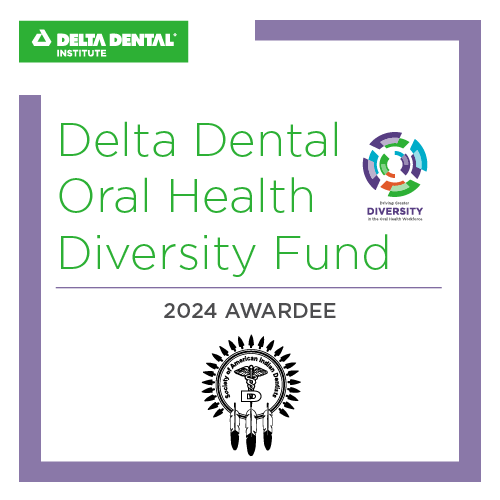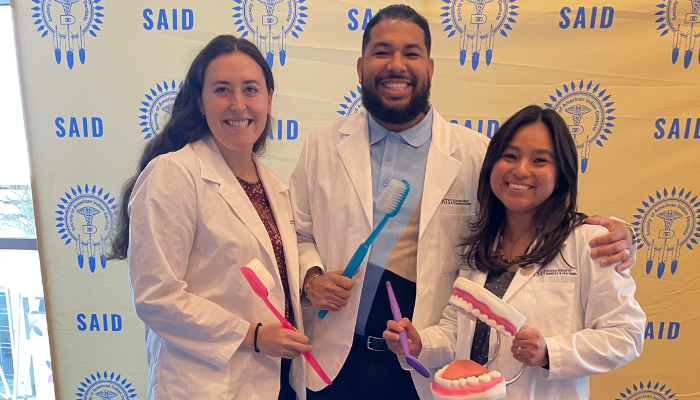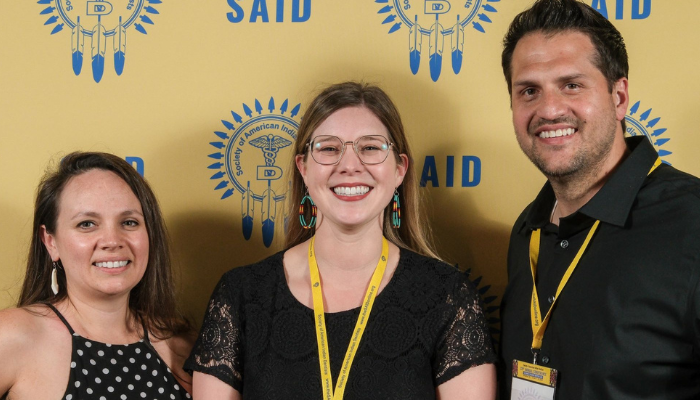|
Delta Dental Institute announced the Oral Health Diversity Fund AwardeesAmong the awardees, SAID received $200,000 to expand its Telling the Story of a Path to Dentistry: Connecting American Indian and Alaska Native (AI/AN) Dentists with AI/AN Youth programming.
Dedicated to increasing the number of Indigenous Dentists in the United StatesAmerican Indian/Alaska Natives (AI/AN) are considered underrepresented minorities (URM) in the field of dentistry, with only 0.2 percent of the active U.S. dentists in 2012 identifying as AI/AN.
Colgate-Palmolive Continues Support of SAID, Solidifying Over 13 Years of PartnershipThe Society of American Indian Dentists (SAID) is pleased to announce the continuation of their partnership with Colgate-Palmolive, a caring, innovative growth company that is reimagining a healthier future for all. read more
Beauty of SAID MembershipThe Society of American Indian Dentists celebrates our students who have made a commitment to prepare themselves to care for our communities. And, we celebrate our professional members who are making an impact in the lives of our people by providing quality oral health care to our communities. read more
More about SAID MembersThe dentists who belong to Society of American Indian Dentists (SAID) are both the subject expert professionals and members of their tribal communities. It is not possible to separate the two. read more |













